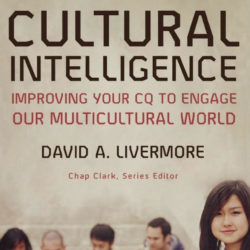By Pastor Joe Epley
It is impossible to read scripture without seeing how often God seems to enjoy using young people from obscure places to accomplish his will in the world. In the center of major biblical narratives, we see the likes of Joseph, David, Jeremiah, Daniel, Mary, and Timothy, and the incredible ways in which God used them. A shared trait among these Biblical heroes is their humble origins, with all of them heralding from lonely fields, nomadic tents, and far corners of countries that served as footnotes in greater empires.
I am convinced that God still uses young people from obscure places. As rural youth pastors and volunteers, we are tasked with discipling these potential world changers. My hope in writing this series is to contribute a perspective, one that has for the majority of my ministry been molded by the lessons learned from rural youth ministry.
I currently live in Southeastern Montana, in a rural community of 1,700 people situated on the edge of the state map. Prior to this, I spent the majority of my life growing up and ministering in the biggest city our state has to offer. Following the call of God, I was led to take a job in Baker, Montana. After zooming in on Google Maps to enlarge this new-to-me speck of a populated area and saying a quick prayer, I embarked on a journey into rural ministry that was truly eye-opening.
The goal of this introduction is not to set me up in an idealized narrative in which I instantly adapt to rural life, overcome challenges, and find successful ministry to teens. That wouldn’t be accurate. When reflecting on my adjustment to rural ministry, I tend to identify with the man blind from birth found in John 9. His story reveals that he has never had sight, and until God miraculously opens his eyes, he has absolutely no awareness of the world outside of his senses of hearing, smell, taste, and touch. Once Jesus gives this man sight, he becomes an evangelist for the cause, even challenging the Sanhedrin to follow Jesus in discipleship.
My own story does not have that quick of a turnaround. The journey from being ignorant of the treasure that is rural youth ministry, to taking on the role of evangelist and advocate for rural communities took longer than one chapter. It is my intention in this series to offer nuts-and-bolts suggestions and principles that have helped me develop a sense of what it means to minister to rural youth. However, before we explore these principles, we must first see differently.
I remember a book I read during my undergraduate studies that seemed straightforward in its subject. It was basically an introduction to missions. The book had the intent of informing the uninformed of what principles guided missionaries as they followed God’s call. I read this book with a dedicated, but distanced understanding. In my mind, this material applied to missionaries, but not me.
Of course, we are all called to evangelize where we are, but in my naïveté, I vastly underestimated how these lessons could shape me. To put it broadly, the work set forth ideas that many missionaries and theologians refer to as indigenous principles. These principles explain why learning language, customs, existing religious beliefs, and cultural values are important for any missionary seeking to engage a foreign culture. After reading this, I can still remember the moment the lightbulb came on: I am not a youth pastor, I am a cross-cultural missionary.
Cross-cultural missionary. That phrase played over and over in my head, and in that moment my philosophy shifted dramatically. I realized that the youth of any generation exist as their own culture. They have a language all their own, developed through slang and social media, and cemented through pop culture. Youth have their own customs, deciding how and when to socialize, and what is proper to do and not do in every new social setting that arrives with rapidly changing technology. Their beliefs have been diversified through the availability of and exposure to new ideas in a technologically connected world. Finally, they have values that are uniquely expressed and driven by powerful forces of a global internet culture.
In this moment, I recognized with sudden appreciation the length to which missionaries go as they become students of the culture they hope to reach. Their dedication challenged me to grow as well. While I was sitting there reading, feeling unfit for the task and daunted by the work ahead, I was challenged by a question from the Holy Spirit: Isn’t it worth it? The answer seems clear. It is worth it. Worth, however, does not guarantee ease.
We are trying to understand a unique culture both in terms of it being rural and youth-oriented. If you’ve read this far, you, too, know it’s worth it. And you likely recognize the difficulty of the task. In my own experience, I’ve found that behind the veil of complex ministry philosophies, we often find simple principles. Here are a few of them that rang true for me.
- Learn the language. The double-edged sword of the internet has created a culture that is at one extreme rapidly changing. This can make it hard to engage with youth where they are at or get in their world. The positive side is that the internet exists as a giant billboard granting insight into what students value, discuss, listen to, and find entertaining. Find out where your students are spending time online and engage with whatever social media platform they are engaging with. It may feel overwhelming, but it is an invaluable window into their lives.
- Let the natives lead the way. Youth value the ability to give input. Although adults are still considered “experts” in their respective fields, when it comes to technology, youth culture, current problems and issues facing their generation, be willing to consider that these teens may know more than us. Yes, there is still a need for oversight, but there is also a very real need for their input. Give students voice in how your ministry operates, how you communicate, what activities you schedule, and what topics you engage with in the pulpit and small groups.
- Read a book. Or a blog. Or a social media post. Or a Facebook group. Or a dozen books. Or an academic study. Listen to a podcast. Or a teenager who is a personal friend. The point is simple, the task is too important not to be equipped. The list of resources is too large to put into the space of this blog, but leverage your network of people to find out what subjects need exploring and what’s being written on the subject. I personally know a pastor who started a youth group and discovered five students struggling with gender identity and sexuality. His first step was to read books on the subject, and I consider his ideas and methods of discipling those students to be far above those who have many more years of experience, but have not been active in learning new things.
Once we can see clearly the task ahead of us, and the value of that task, the nuts and bolts of youth ministry can be explored, which we will do in parts two and three of this blog.





















